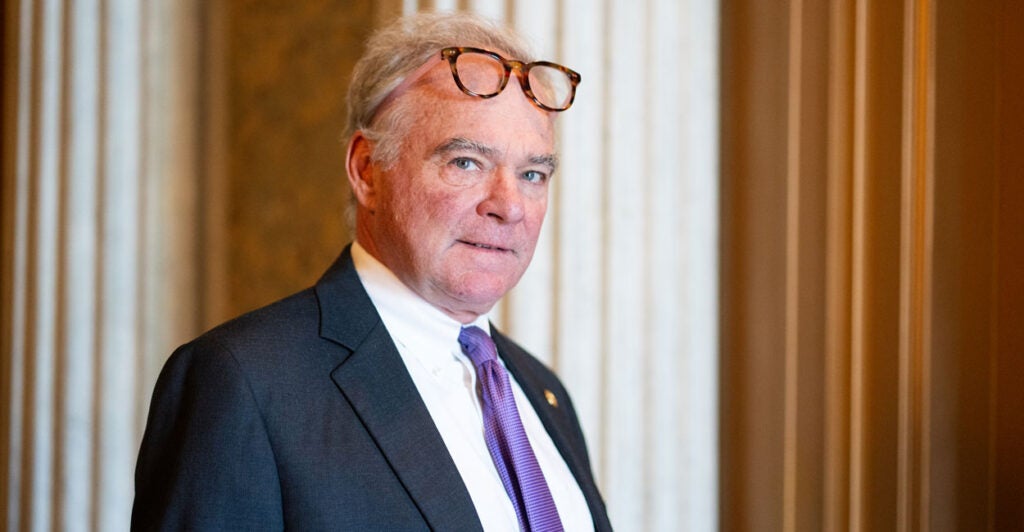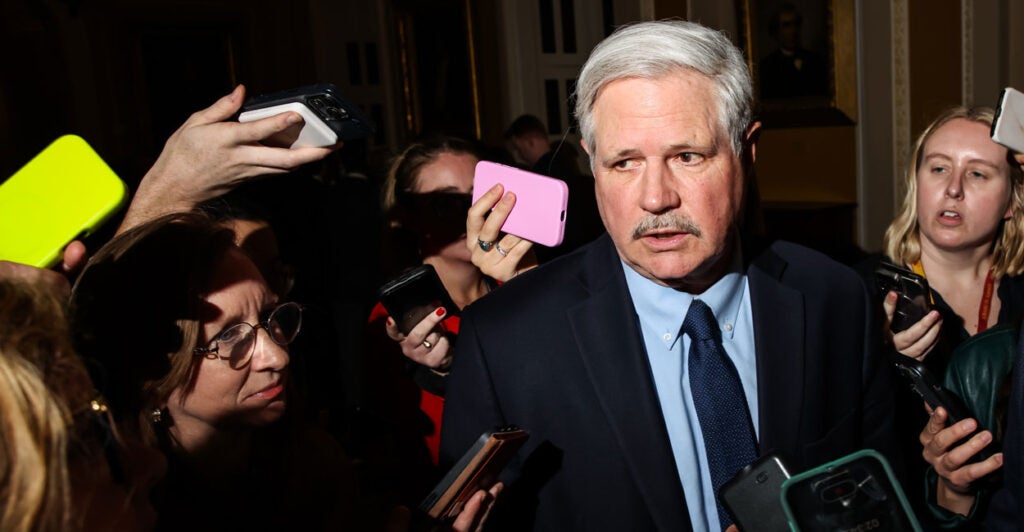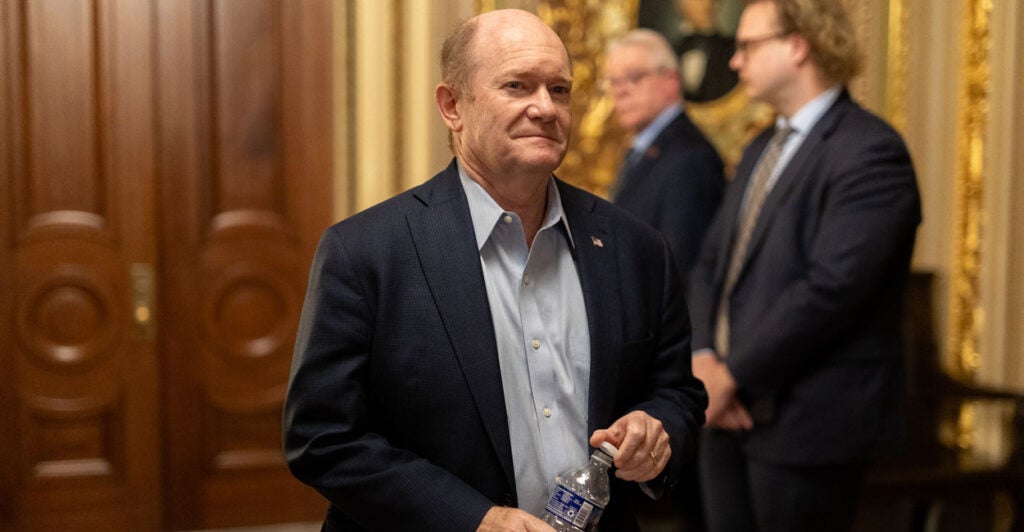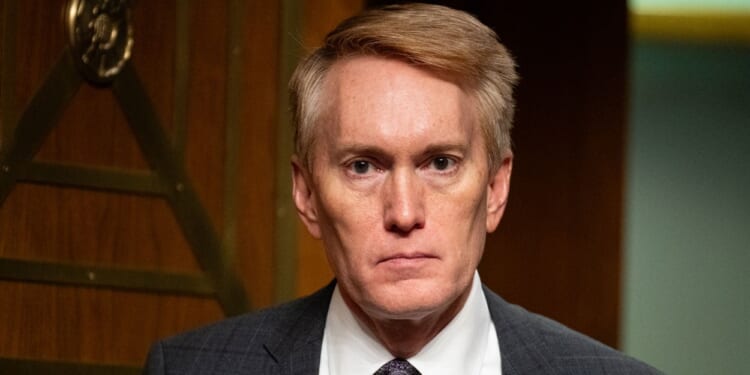Senate Republicans managed to stave off Democrats’ healthcare demands after enough Senate Democrat Caucus members broke ranks on a deal to reopen the government. But Republicans are still in search of health care solutions, and some are using the continued debate over Obamacare subsidies to float an ambitious, politically risky restructuring of Obamacare.
As part of the deal that paved the path towards reopening the government, Senate Republicans have guaranteed a December vote on the extension of COVID-era enhanced premium tax credits, setting the stage for a contentious policy debate not only over the subsidies but the future of Obamacare itself.
Fixing the Obamacare Subsidies
Sen. James Lankford, R-Okla., who serves as vice chair of the Senate Republican Conference, is open about the fact that Republicans are not interested in a simple, clean extension of these tax credits, which were increased and expanded under President Joe Biden to higher earners. When the credits are advanced, they function as direct subsidies to insurance companies.
“We’re interested in trying to find affordability in health care, definitely,” he told The Daily Signal. “But there’s so many problems with that additional subsidy that have been well reported…We’ve got people [earning] half a million dollars a year in income that are getting the subsidies.”
To make matters worse, Lankford says many individuals “don’t even know they have the coverage,” and do not utilize it. In that case, “there’s just money being sent to insurance companies,” Lankford said.
“That’s why there’s been unwillingness to say, ‘just extend it,’” Lankford added.

Nevertheless, one of the Democrats who agreed to the deal poised to end the shutdown, Sen. Tim Kaine, D-Va., appears to believe that plenty of Republicans would be on board with a Democrat-backed bill to extend the premium tax credits.
With 53 Republicans in the upper chamber, however, a bill to extend those subsidies would face an uphill battle. Getting past the 60 vote threshold would likely require some kind of reform.
In the House, meanwhile, Speaker of the House Mike Johnson, R-La., has said he is not bound to hold a vote in the House on the expiring subsidies.
But Kaine believes the Senate could force Johnson’s hand. Johnson is “not guaranteeing it, but look, if we do something that gets bipartisan support here, he will not be able to skip on it because he’s got both all the Democrats and many Republicans saying we got to fix this ACA tax credit thing,” said Kaine after the Senate voted to reopen the government.
Some Republicans do want some form of an extension of the credits. Sen. Thom Tillis, R-N.C., for example, sees no point in a one-year extension, but does think a modified version should be advanced.
“I don’t think you’ll see a straight one-year extension, because does anybody really want to go through this drama next year during an election cycle?” Tillis, who is not seeking reelection in 2026, told The Daily Signal. “I’m not up for election, but that just makes no political sense to me, that you do a simple extension, same narrative next year.”
Instead, Tillis advocates roughly a “two-year timeline” of reformed extension that allows for adjusting the subsidies’ income limits in the first year, “but then do the reforms in year two.”
Beyond The Subsidies
While Republicans are focused on the immediate problem of the expiring subsidies, some have indicated a willingness to go beyond COVID-era subsidies and ambitiously restructure Obamacare.
“We’re going to have to have some key reforms that go at the cost problem. Obamacare is what’s driving up costs,” Sen. John Hoeven, R-N.D., told reporters shortly before the Senate voted to reopen the government.”
Hoeven views Obamacare as an underlying contributor to the rising cost of health care and believes the enhanced premium tax credits were merely put in place to “somehow mask that cost increase.”

Some Republicans are reluctant to take on Obamacare too aggressively, however.
“You got other people… who say we need to repeal Obamacare. I’d like for them to sit down and tell me exactly what that means, because it’s not easy,” Sen. Tillis told The Daily Signal. “It’s not what it was [that] we were attempting to do seven or eight years ago. It’s very different in terms of how the entire healthcare system is built around some of it. So I think now you pull what you can, you reform what you can, but we have to have solutions.”
Tillis’ discussion of the difficulty of a complete overhaul is similar to remarks from Speaker Johnson, who recently said, “American health care needs dramatic reform,” but he is skeptical about the possibility of repealing it “because the roots are so deep.”
An effort to partially repeal the Democrat health care legislation notoriously failed in 2017 when three Republican Senators voted against it. This failed effort preceded Republicans getting swamped in the 2018 midterms, and Democrats gaining control of the House.
Republican Solutions?
There already are some Republican-led proposals on health care reform.
Sen. Bill Cassidy, R-La., who chairs the Senate Committee on Health, Education, Labor and Pensions (HELP), has proposed giving Americans a “pre-funded flexible savings account [FSA] worth as much as the enhanced premium tax credit that they would receive.”
Proponents of the Cassidy plan believe this approach would avoid direct subsidies to insurance companies, allow Americans more flexibility in the health care they pay for, and create incentives for consumers to purchase more cost-effective plans and insurers to lower prices.
The proposal has attracted some attention.
“I’m in those conversations. We got to be able to form it. It exists as an idea at this point. It doesn’t exist as legislation,” Lankford said of the proposal. “We’ve got a lot of things we got to be able to work through, but definitely we got to be able to look at what is a better way to be able to get help to people that need help, rather than just sending a check to an insurance company and saying, ‘y’all be good.’”
“Anything that we do in this space is going to be bipartisan,” Lankford explained. “We all see it as a problem. We just have very different ideas. Democrats just say, extend the status quo and pretend the problems aren’t there, and then we’ll figure it out sometime. We’re just not willing to do that.”
Sen. Hoeven told The Daily Signal that a larger effort to address health care costs could involve Democrats.
The 2017 Obamacare replacement attempt involved a budget reconciliation bill, which would have been a party-line vote. Budget reconciliation bills, such as the July “big, beautiful bill,” are passed with a simple majority in both chambers, although provisions in these bills must be budgetary in nature.
“Ideally, we want a big bipartisan majority to get the kind of reform that we can support,” Hoeven told The Daily Signal. “Giving people more control over their selection of their health care provider, and something that will bring in the cost purchase decision to try to address the escalating cost.”
Democrats, towards the end of the current government shutdown, proposed a task force to coordinate reforming Obamacare tax credits.
Hoeven, however, believes that the boarder health care discussion should be led by the proper committees.
“We got to always quit going around the committees of jurisdiction,” Hoeven said. “How about the finance committee and the HELP committee get to work?”
“Cassidy’s got a lot of good ideas,” the North Dakota Senator added. “So let’s do it the right way, through the committee structure [and] build bipartisan support.”

But Republican health care discussions are already flustering some Democrats.
“Trump was elected the first time, spent years saying they were going to improve on the ACA and replace it. And they never did,” Sen. Chris Coons, D-Del., told reporters when asked about Republicans seeking an aggressive reform of the Obamacare tax credit structure. “They never came out with a credible plan. My friend and predecessor, John McCain, voted no, because they never came up with anything.”
Coons did, however, indicate some openness to supporting reforms of the tax credit system.
“If President Trump, who ran on lowering people’s costs and making America healthy again, actually cares and engages and pushes people… it’s not impossible that we could make real progress quickly,” said Coons. “There are a few simple ideas that a lot of folks agree on, but a multi-year extension of the Affordable Care Act [credits] in exchange for some of these reforms would be a perfectly reasonable thing.”
















